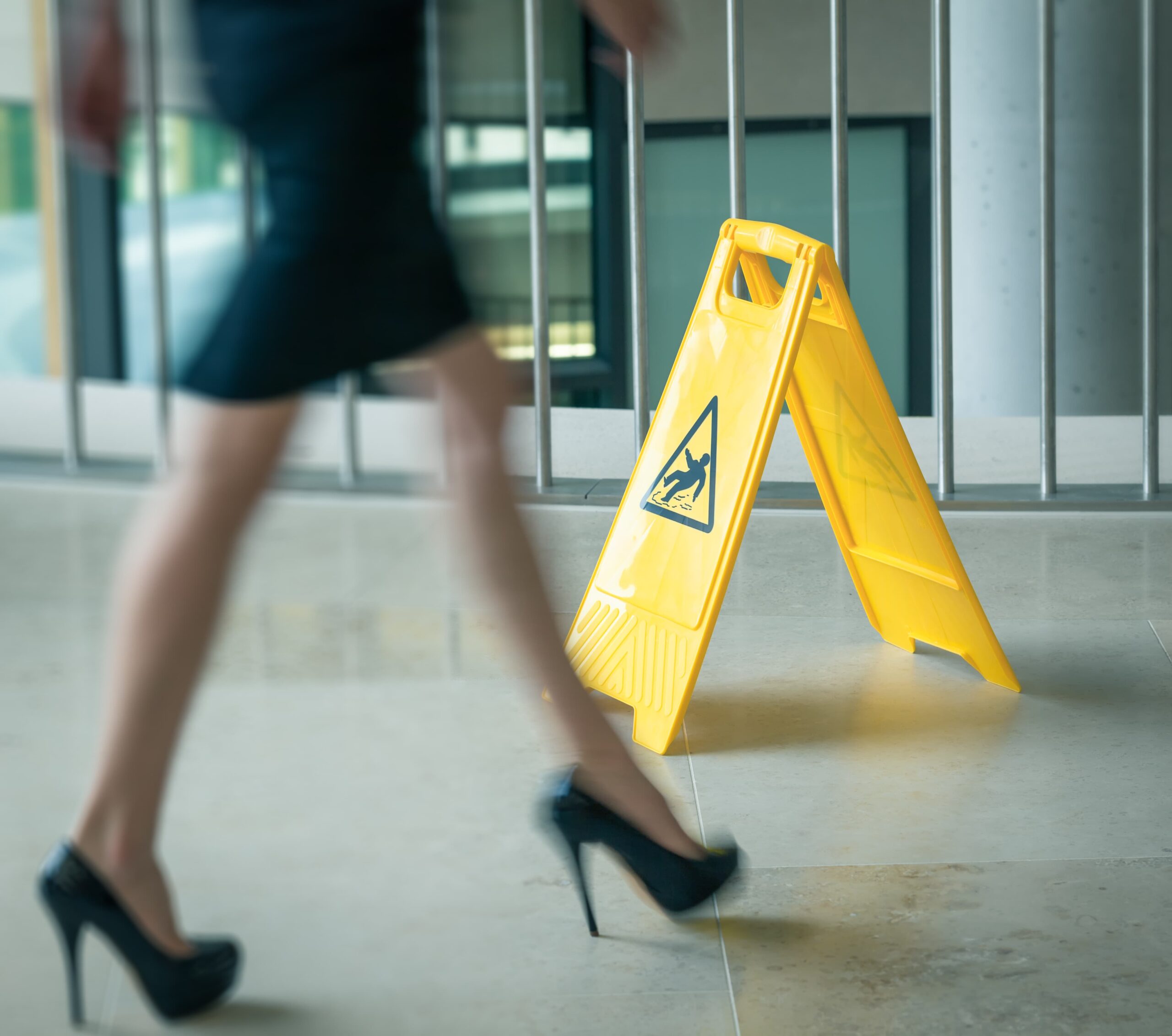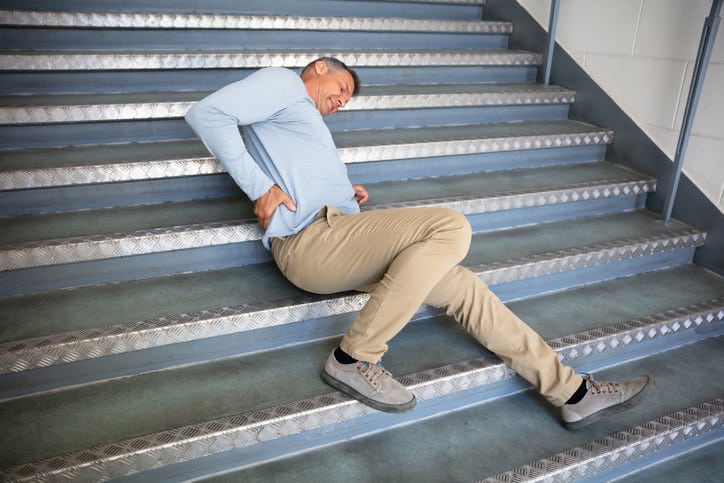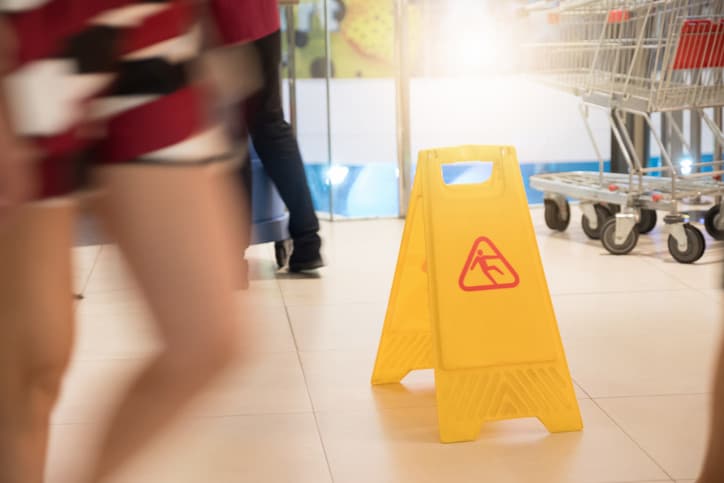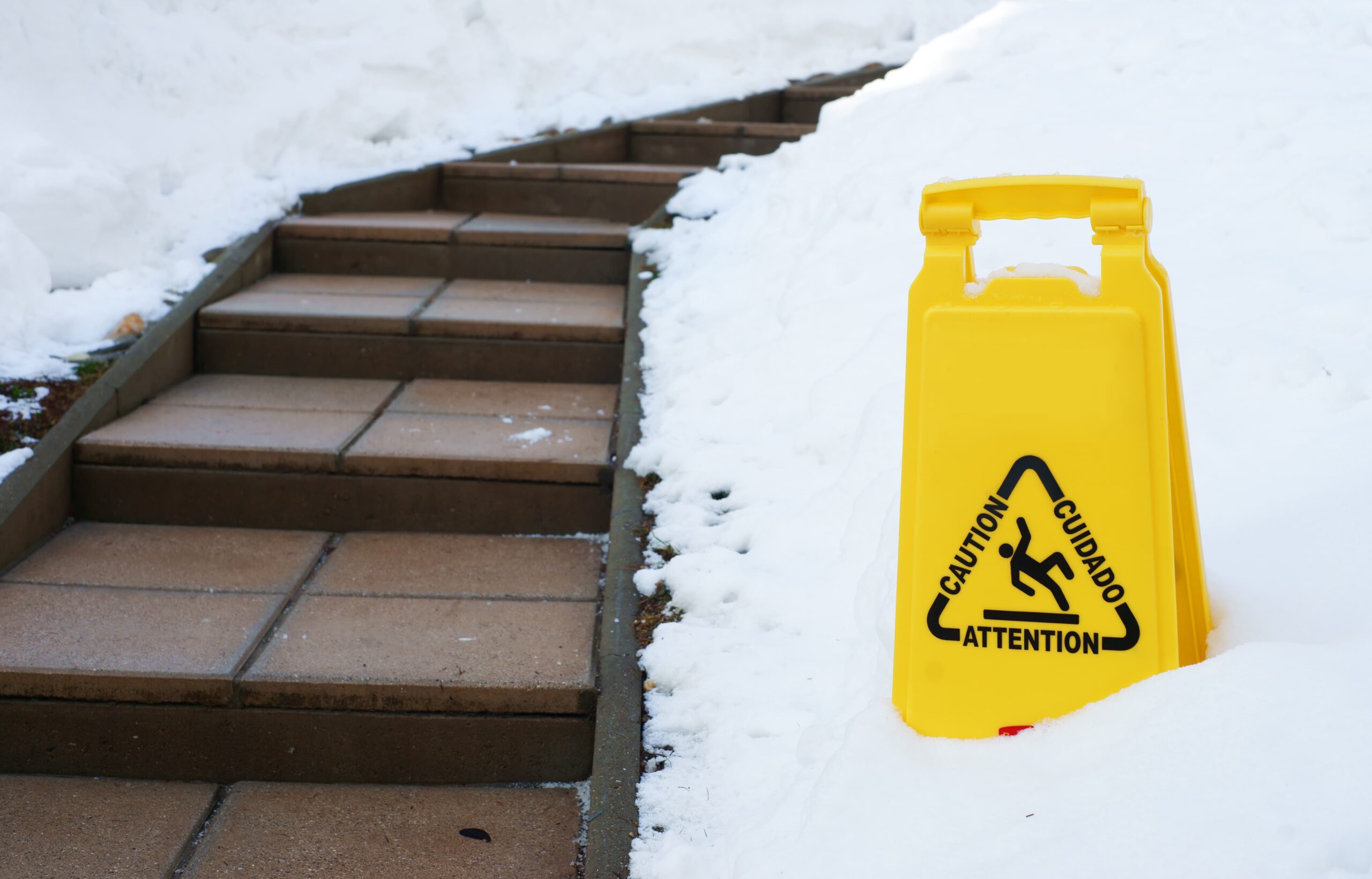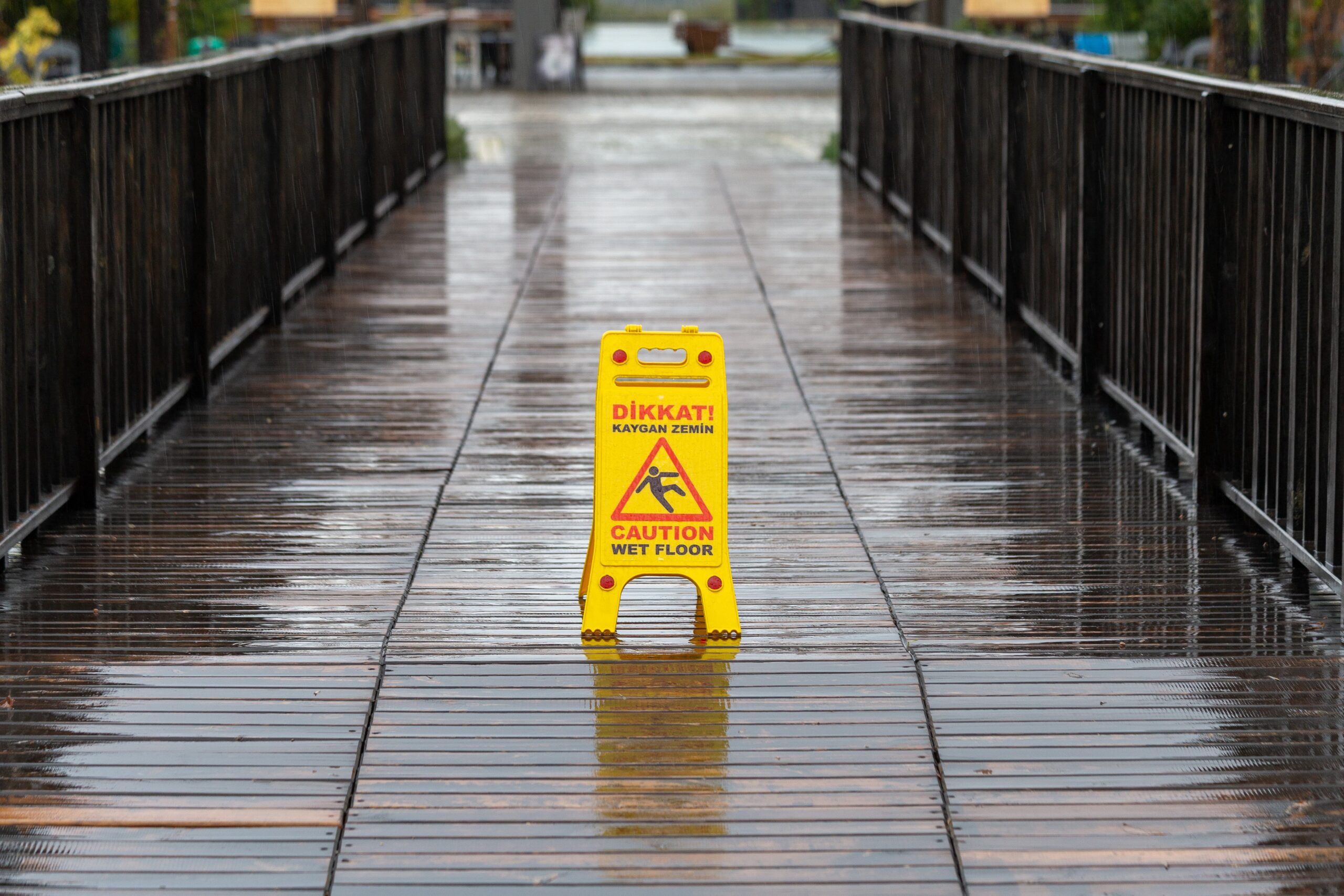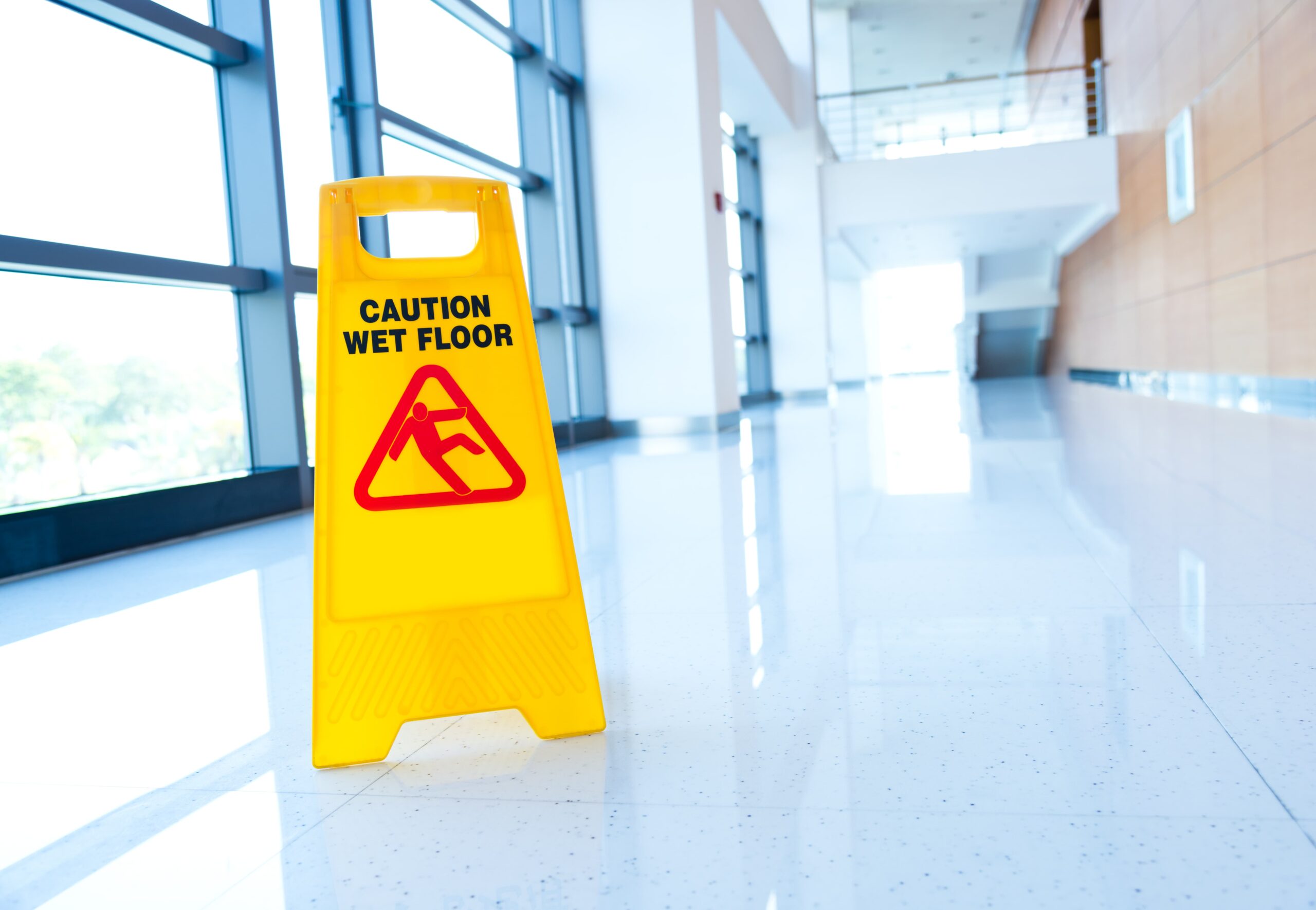What You Need to Prove to Win a Slip & Fall Injury Claim
What you need to prove to win a slip and fall case is a number of elements that together show the defendant is legally responsible for the accident. To win a slip and fall case means proving that a number of things are present. In total, these elements show that the accident is the legal fault of the defendant. Our slip and fall attorneys at Bachus & Schanker explain what evidence you need to prove to win a slip and fall injury claim.
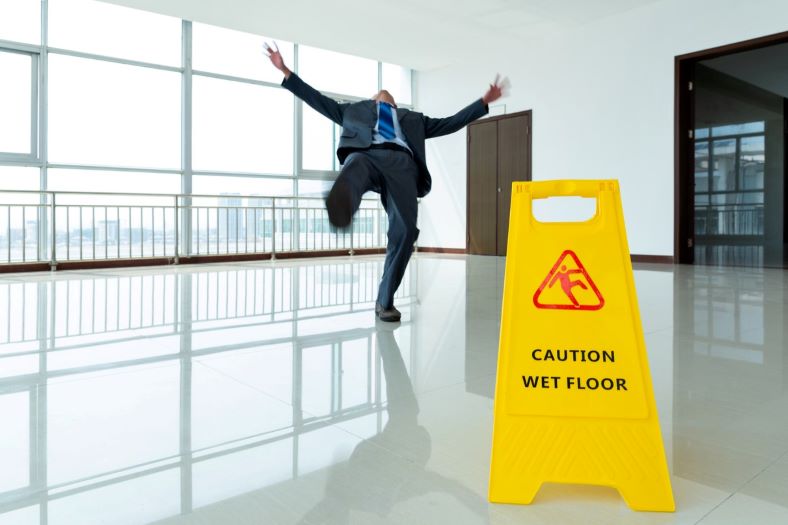
What You Need to Prove to Win a Slip and Fall Case
What you need to prove to win a slip and fall case is that the accident and your injuries occurred because of the negligence of the defendant. In total, there are four steps to proving a slip and fall case:
You must show that the defendant has a legal duty to the victim. Usually, in a case against a property owner, this element is always present. Then, you must prove that the defendant breached that duty by acting negligently. Next, you must show the causation link between the breach of duty and your injuries. Finally, you must show that you have damages or losses resulting from the accident. All of these elements are what you need to prove to win a slip and fall case.
Steps to Prove a Slip and Fall Case
The steps to prove a slip and fall case are the following:
Duty
Most slip and fall cases are against the property owner. A property owner has a varying level of duty to the people who set foot on the property. The first step in proving a slip and fall case is proving the level of duty that the property owner has to entrants on the property. To know your amount of duty, you identify the reason that the victim came onto the property:
Invitee – A person invited onto the property for the benefit of the property owner. A customer who comes to shop at a store or eat at a restaurant is an invitee.
The highest duty of care is the duty of care owed to an invitee. The property owner must protect an invitee from dangers that they either know about or should know about. A property owner must actively take steps to find dangers and take remedial measures before harm occurs to the invitee because of a dangerous condition on the property.
Licensee – When a person enters onto someone else’s property for the mutual benefit of the person and the property owner, the person is a licensee. Going over to someone’s house for dinner makes you a licensee, for example.
The property owner has a duty to warn a licensee about dangers that they are aware of on the property. The property owner must warn the licensee of hazards that they are aware that they have created, and also unexpected dangers on the property that they did not create. A property owner is not responsible to a licensee for dangers they are not aware of.
Trespasser – A person who enters onto the property of someone else without permission
A property owner’s duty to a trespasser is very low. The property owner is liable only for willful or deliberate injuries that they cause. Although the standards are very low, the law does not allow a person to intentionally harm a trespasser on their property, unless, of course, principles of lawful self-defense apply.
Proving a slip and fall case begins with identifying the duty of care that applies in the case. You must prove what duty of care applies to the landowner.
Breach of Duty
Once you identify the duty that applies in the case, the next thing that you need to prove is that the defendant breached their duty of care. To breach a duty of care means to fail to live up to the legal standard that applies. All breach of duty inquiries depend on what’s reasonable conduct. A property owner isn’t strictly liable for anything that might happen on their property. Instead, they only have to act reasonably based on all of the circumstances.
To prove a slip and fall case, you show how the defendant breached their duty of care. You identify the facts that show how the property owner didn’t identify the harm, didn’t take the appropriate steps to protect the victim, or deliberately caused harm depending on the standard that applies. To prove your slip and fall case, you rely on the facts that show the actions of the landowner leading up to the accident.
Causation
Once you show that the landowner didn’t live up to their duty of care, the next step to winning your slip and fall case is proving that the breach of duty caused the accident. Even if a property owner breaches their duty of care, you must still prove that the breach of duty caused the victim’s injuries.
There might be a danger on the property that is completely unrelated to the cause of your injuries. However, it must be the breach of duty that is the proximate cause of the injuries. To win your slip and fall case, you must prove that the property owner’s breach of duty is what made the accident happen.
Damages
The final step to proving your slip and fall claim is showing that you have damages. To win a slip and fall case, you must have injuries or losses. Usually, damages take the form of physical injuries in a slip and fall. If you have a doctor’s bill because of the slip and fall, that’s an example of damages. Many different types of damages may apply, including both economic and non-economic damages. However, you must show that you have damages to win your case.
To receive a fair result in your case, you must not only show that you have damages but also the full extent of your damages. You must review all of the types of damages that you can claim and present the appropriate evidence to show what damages you have and the amount that you should receive as compensation. Demonstrating what your damages are is the final step to win a slip and fall claim.
Attorneys for Slip and Fall Accidents
If you’ve been in a slip and fall accident, contact our attorneys for a free consultation about your claim. Bachus & Schanker are experienced Personal Injury Attorneys in Colorado that have recovered millions of dollars in damages for our clients. Contact us today for a free, no obligation consultation of your case.

